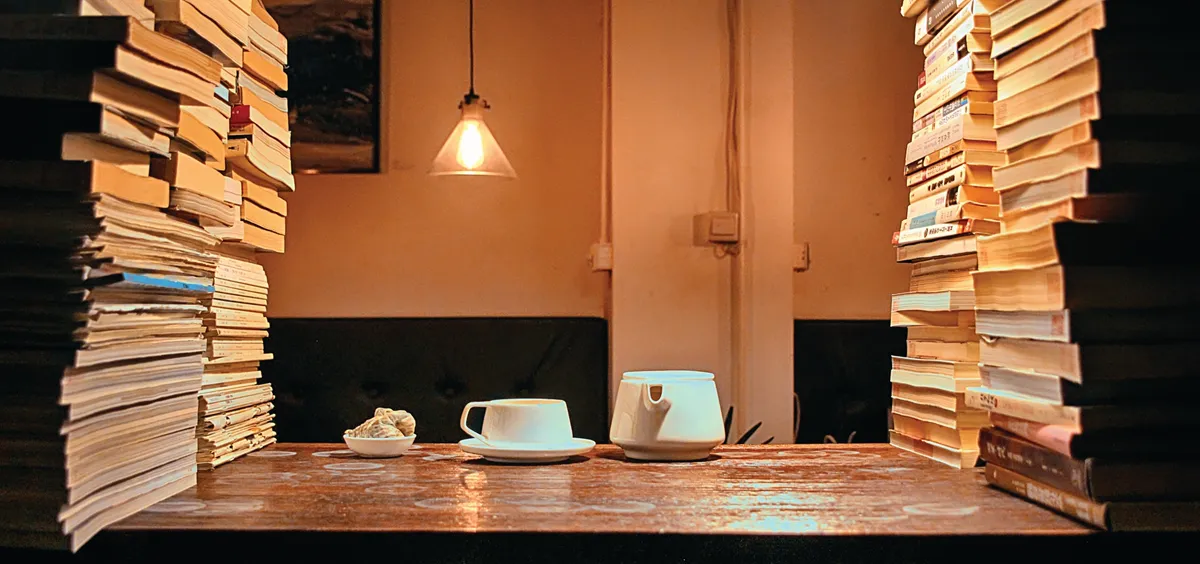Café culture blossoms as Chinese youths seek homes away from home
In Ernest Hemingway’s short story “A Clean, Well-Lighted Place,” a lonely waiter reflects that he is one “of those who like to stay late at the café…with those who do not want to go to bed. With all those who need a light for the night.” In the late 1990s, Starbucks rose with its vision of being a “third place,” somewhere between home and work, a pleasant environment where customers can surf the web, caffeinate, and take refuge from the maddening crowds.
Today, the crowds are in Starbucks, whose second-largest market is China, home also to Korean and Chinese chains—but also an expanding coterie of independent coffeehouses in major cities and tourist sites. The latter, especially, are fast becoming a true third place in Chinese society.
For young workers in first-tier cities, who live with family or in shared housing, sacrifice their social life for overtime, and can’t afford traditional cultural activities, cafés offer an impressive assemblage of happenings: film screenings and salons, live music, arcade and board games, mini-libraries, art exhibitions. There are cozy nooks for a romantic rendezvous, comfy cushions for a nap, photogenic latte art and desserts, and, of course, free Wi-Fi. Sometimes, café culture even gets off the couch and makes a social impact, as shop owners transform the historic neighborhoods they move into, or sell coffee to support side-businesses like indie bookstores and antique shops—even cinemas.
“We’re just improvising; we started this business because we like to have fun,” says Mr. Lin, a bed-and-breakfast owner in rural Zhejiang, who added a café downstairs when guests requested a space for socializing. Whether they’re just popping in to snap a photo of the décor, or are bunkered down for a day of sipping, snoozing, and nursing the next great start-up idea, the cast of characters in China’s cafés help create their unique ambience. Pull up a chair—there’s always room for one more in this “clean, well-lighted place.”

Sometimes costing just the price of one drink, live music Events at cafés are low-cost leisure for those who cannot afford concerts and other cultural offerings of the city
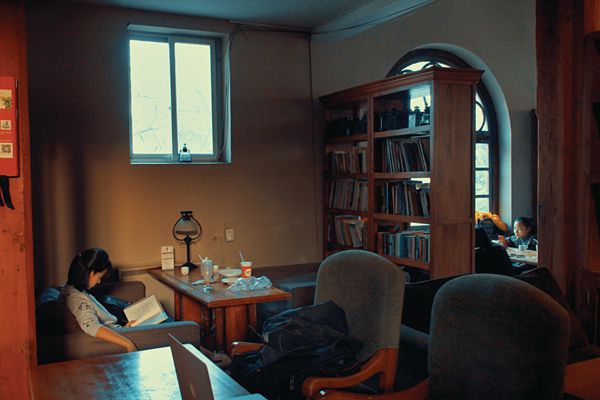
With long hours, cozy set-ups, and few rules to enforce how long one stays, cafés can be an all-weekend escape from the overcrowded dorm or apartment
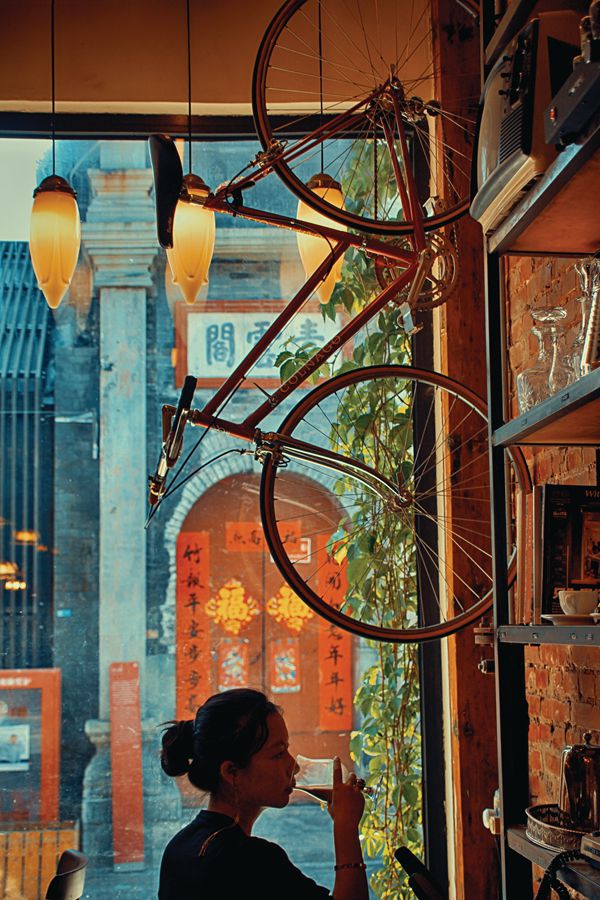
“What millennials are drinking is not coffee, but an emotional experience”—declared the Chinese translation of a 2016 study by American roaster S&D
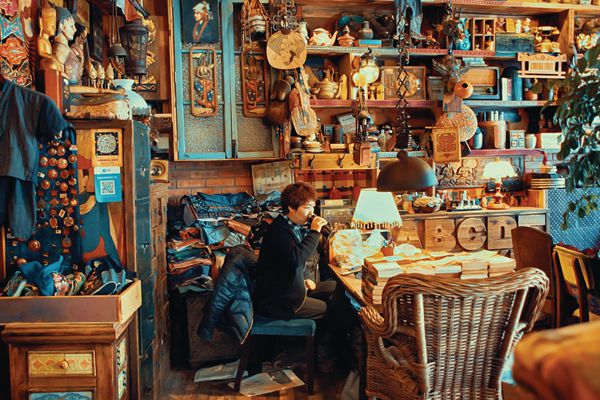
Middle-aged café customers are still rare in China, where the majority of regular coffee drinkers are between ages 25 and 39, according to a study by Caffe Pascucci
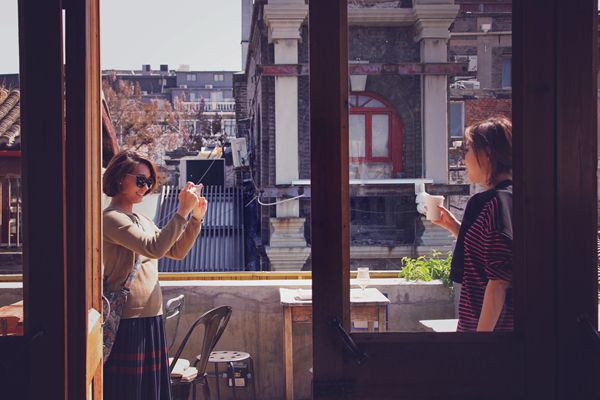
A well-positioned and well-decorated café can get steady traffic from customers who simply come to take photos
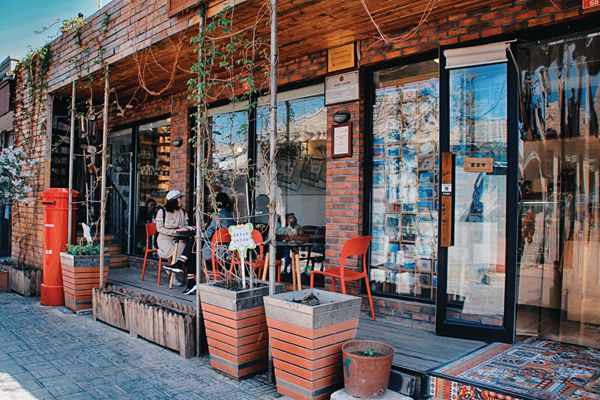

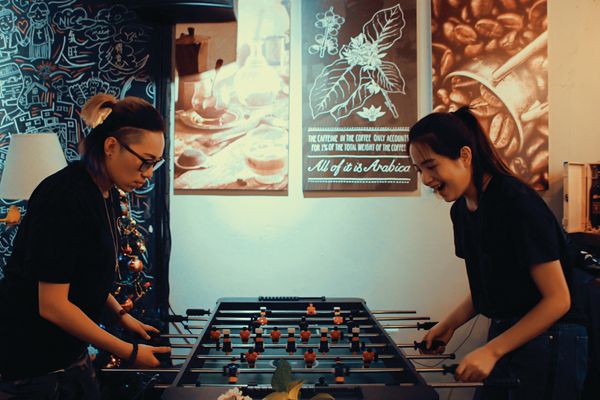
In a nation that consumes just four cups of coffee per capita per year (20 in first-tier cities), books, postcards, and games are some of many ways cafés draw customers in
Bean Scenes is a story from our issue, “Vital Signs.” To read the entire issue, become a subscriber and receive the full magazine.





